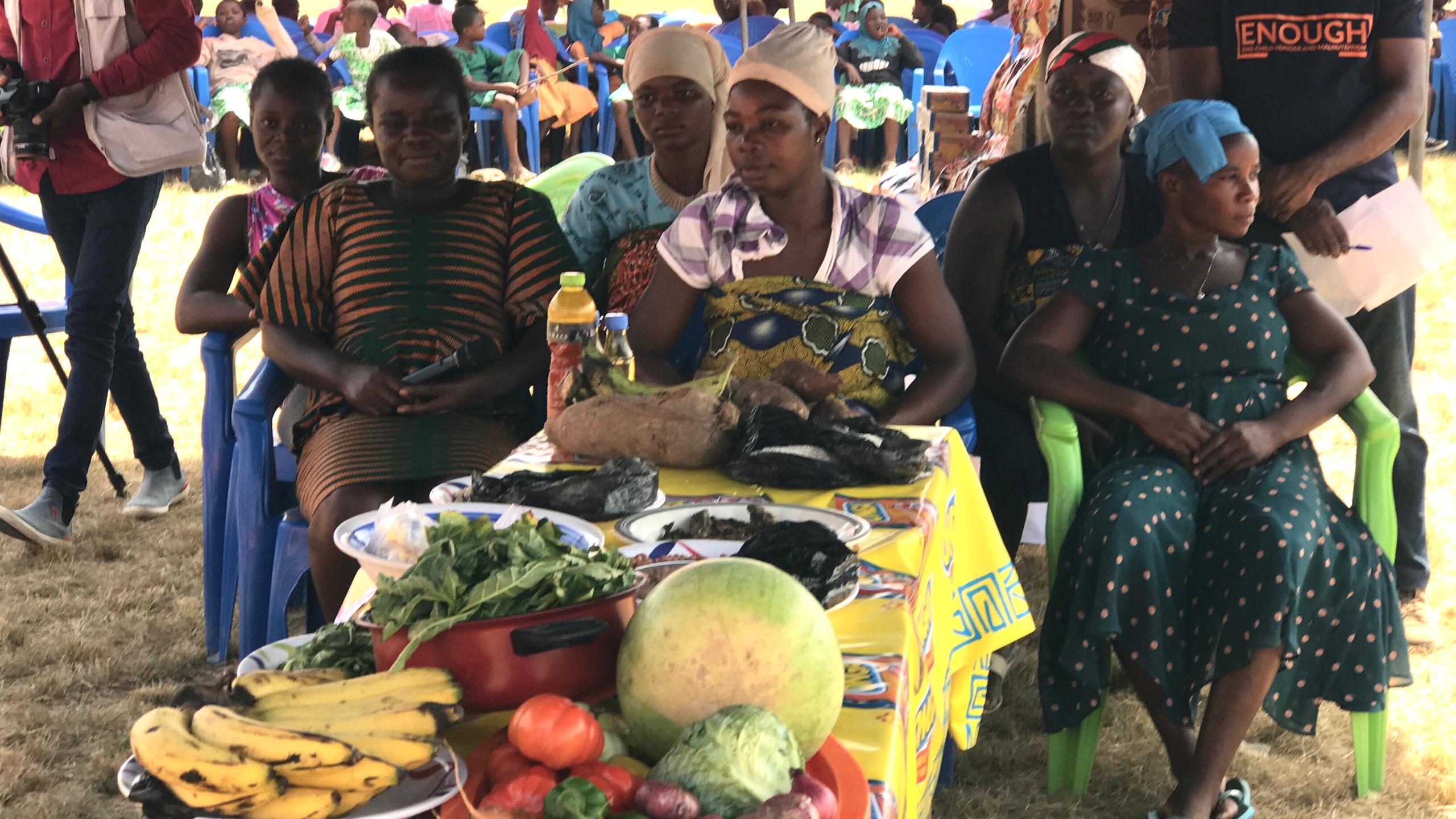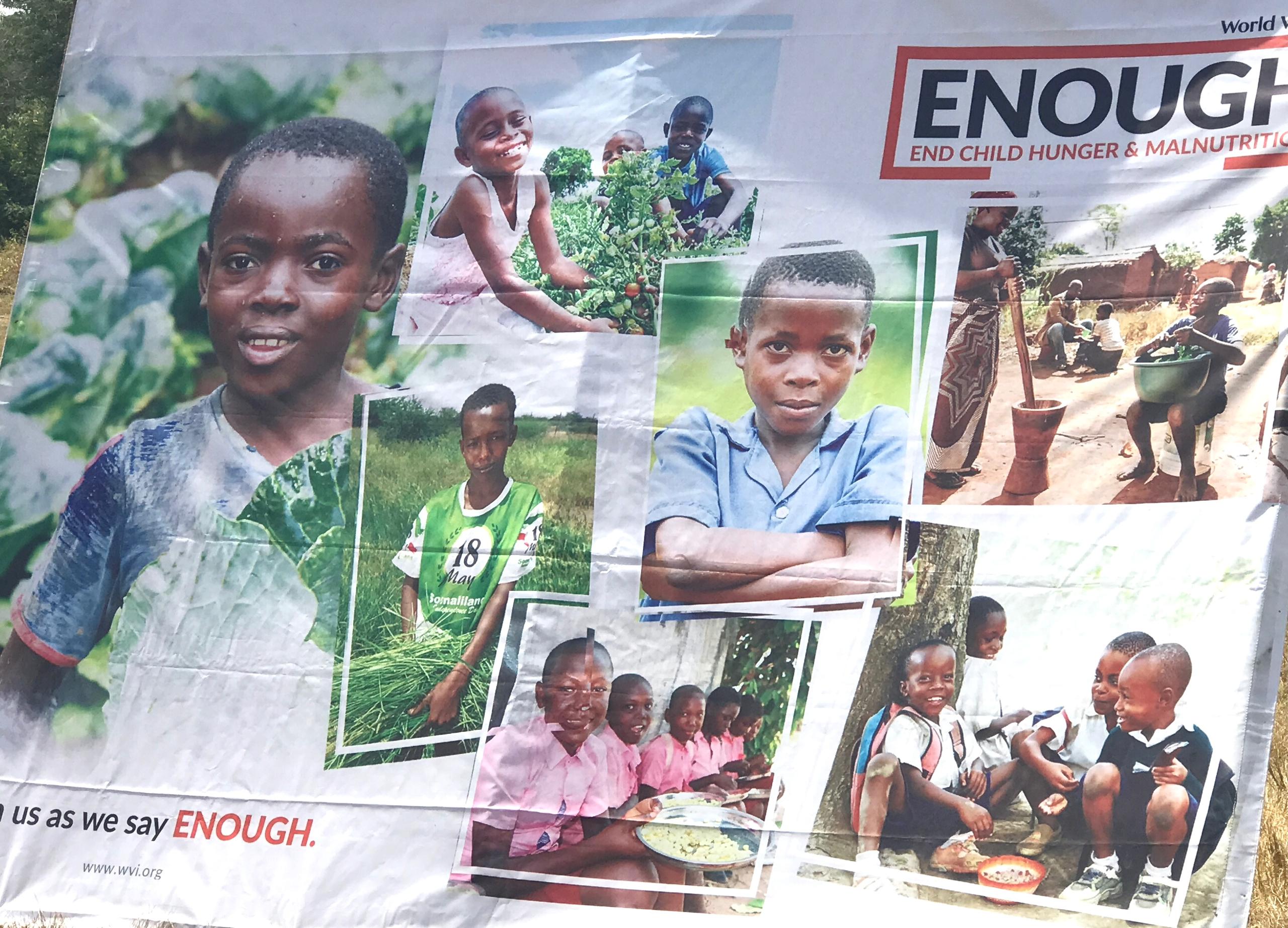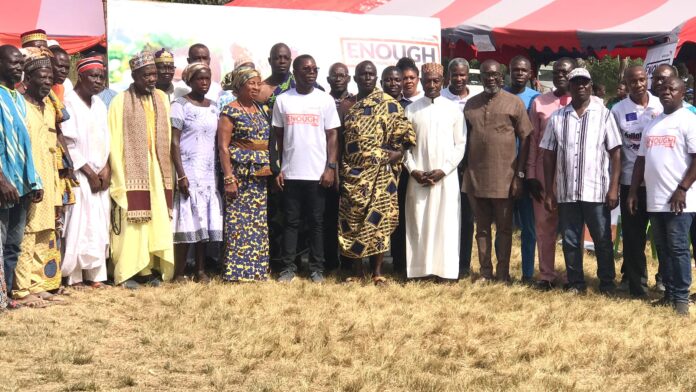As part of an effort to combat the pressing issue of child hunger and malnutrition in the Kadjebi district of the Oti Region, World Vision is seeking partnership with the government and other relevant stakeholders to help fight child hunger and malnutrition.
This initiative aims to address the alarming rates of malnutrition and food insecurity affecting children.
According to the Interim Cluster Manager of the Kadjebi Area Program of World Vision, Kennedy Amponsah-Cheremeh, the organization is committed to ensuring that every child has access to sufficient and nutritious food.
Child hunger remains a critical challenge in Ghana, including in the Kadjebi-Akan district, with many children suffering from stunted growth and developmental delays due to inadequate nutrition.
Speaking at a program at Ahamansu in the Kadjebi district to launch the “Enough: End Child Hunger and Malnutrition” campaign, he underscored that climate change, the COVID-19 pandemic, and other factors have exacerbated the issues, leading to increased poverty levels and disrupted food supply chains. As Ghana faces difficult economic conditions, the issues mentioned above are witnessing an increase in malnutrition and hunger among children under 5.
He noted that Article 24 of the UN Convention on the Rights of the Child highlights the essential need for children to receive adequate nutrition, which SDG Goal 2 seeks, among other things, to end child hunger and malnutrition.
He said in response, World Vision believes there is enough in the district and the communities to provide every child with a life of plenty, joy, and hope. Kennedy Amponsah emphasized the importance of the campaign, which seeks to partner with the government and relevant stakeholders to build a world where every child enjoys nourishing food so they can thrive.
The “Enough” Campaign will contribute to this vision through two main strategic goals: ensuring that children are visible and heard in hunger, nutrition, and food security-related policies, and ensuring that more children enjoy better food security, nutrition, and resilience through prioritized services.
He noted that World Vision has already initiated several programs in the Kadjebi district aimed at alleviating child hunger, including community-based feeding initiatives and nutrition education campaigns. The interim manager believes that a stronger partnership with the government will amplify their efforts and lead to more significant, long-lasting change by aligning their goals with government strategies that can create a more coordinated response to child hunger.
The organization is also advocating for the inclusion of child nutrition in national development plans that would ensure addressing child hunger becomes a priority for policymakers and that resources are allocated effectively.
However, David Ebenezer Mensah, the nutrition officer for the Kadjebi district, has expressed deep concern regarding the alarming rise in cases of hunger and malnutrition among children in the area. He highlighted that many families are struggling to access nutritious food, leading to severe health implications for the youngest members of the community.

David Mensah emphasized the importance of community awareness and education on proper nutrition, urging local leaders and organizations to collaborate in addressing the pressing issues. He believes that by prioritizing child nutrition, the district can foster healthier futures and break the cycle of poverty and malnutrition.
There was a food demonstration, Mother-to-Mother Support groups, and a drama by Child Parliament and Kids Clubs during the launch. There was also the “Signing of the Commitment Board” by all the stakeholders present. In attendance were Chiefs, Assembly members, District Directors of Health, Education, NCCE, Environmental Health Unit, among others.


ALSO READ:

